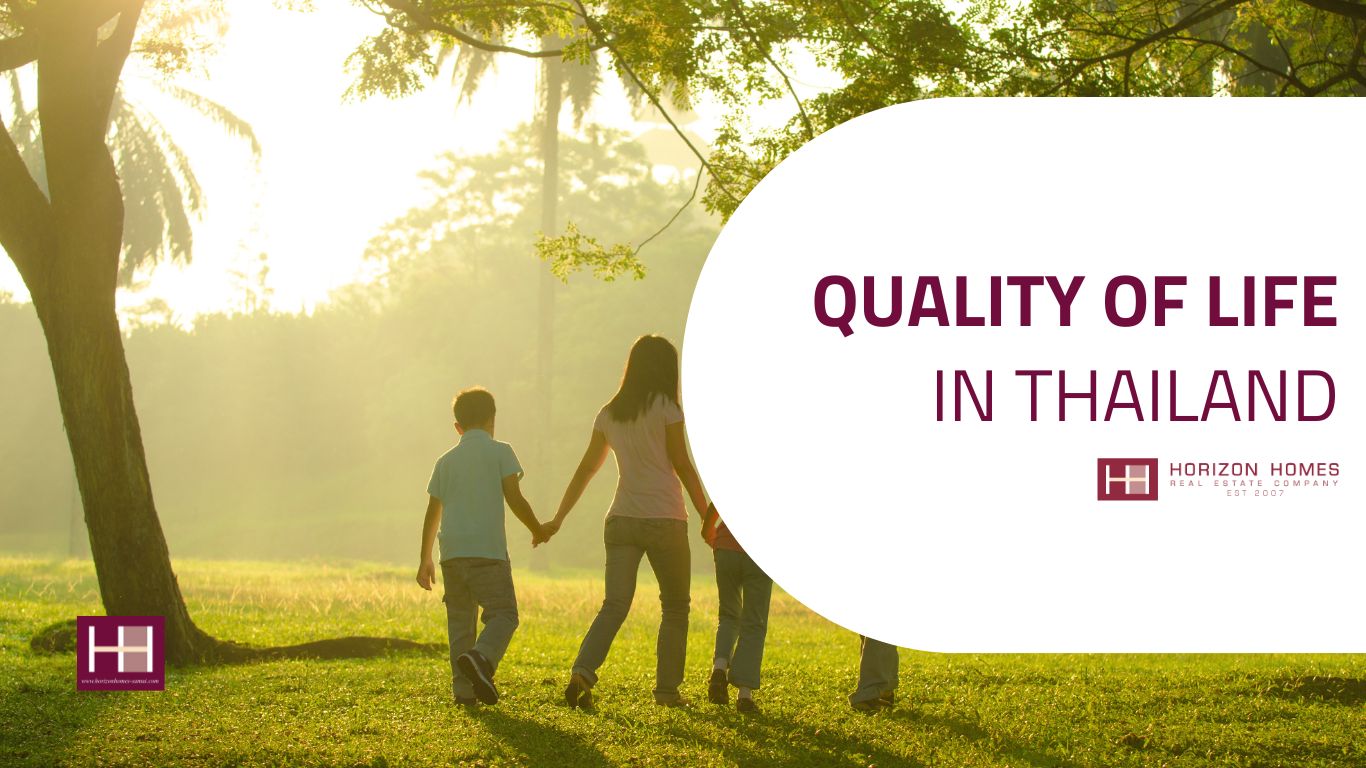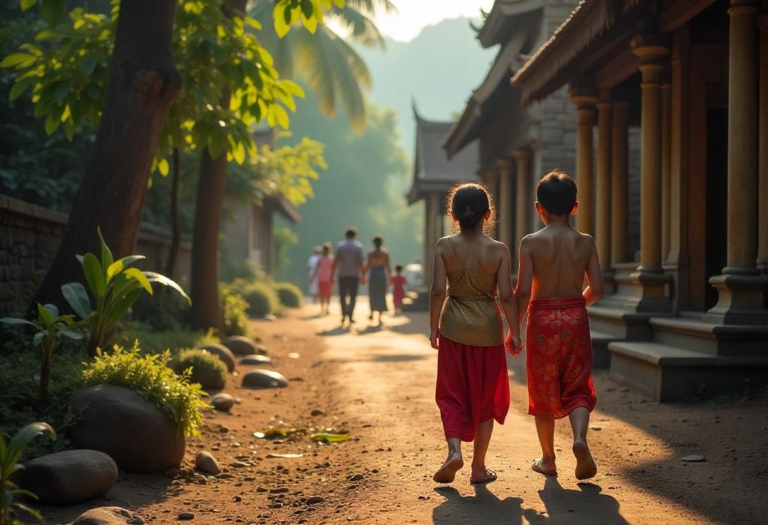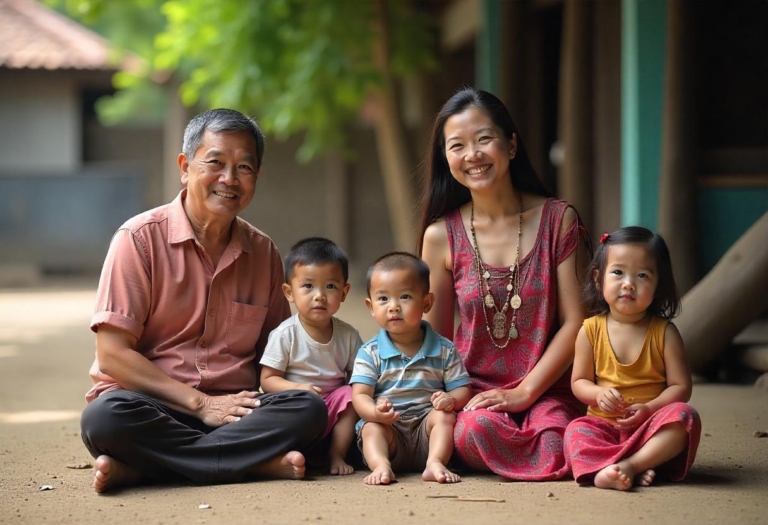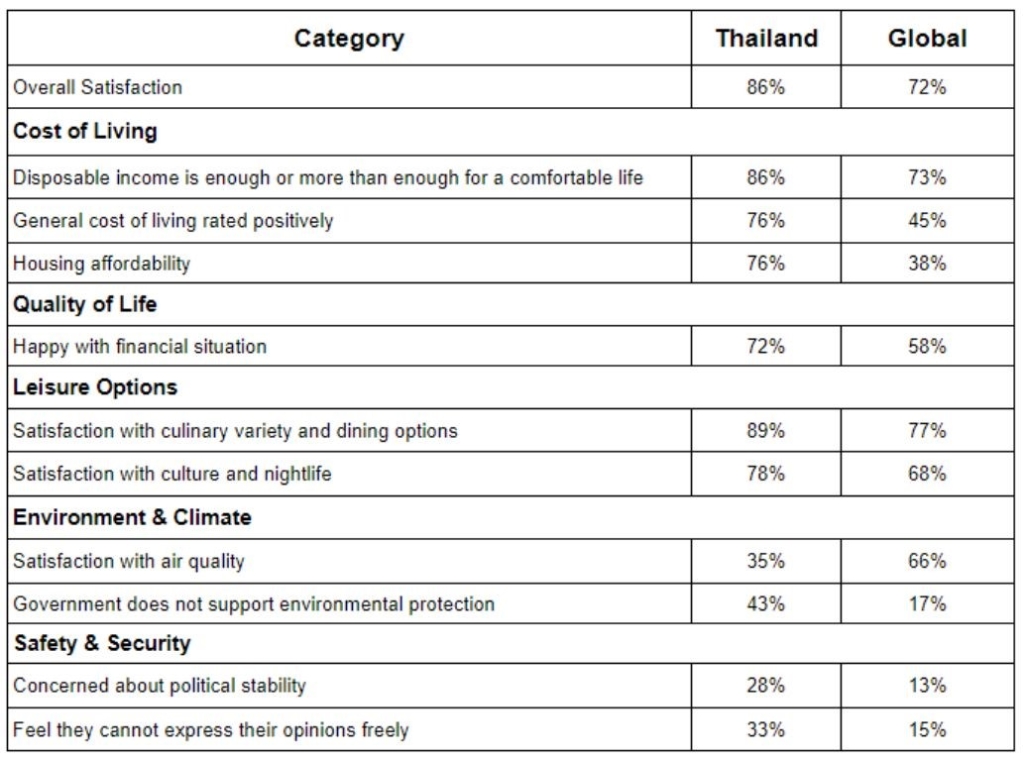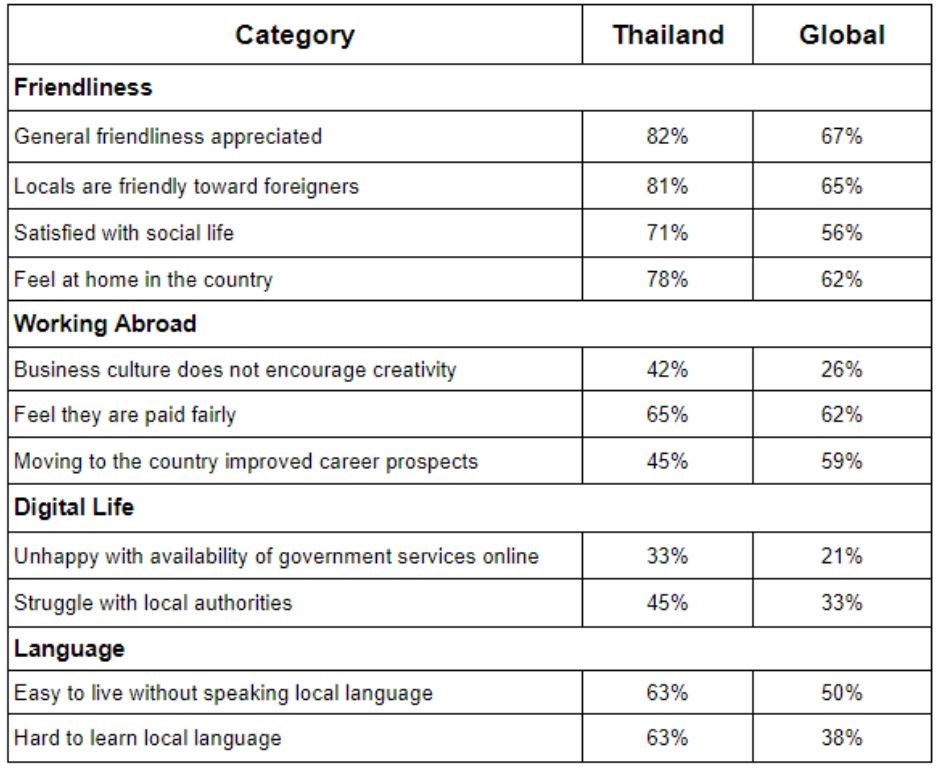Quality of life is a multifaceted concept that transcends mere economic indicators. In Thailand, a complex interplay of cultural, social, and environmental factors shapes the daily experiences of its citizens.
This discussion examines the critical aspects that influence life in Thailand, encompassing the economy, standard of living, and the importance of community and family values. By comparing these elements with those of other countries, we can gain a deeper understanding of the unique challenges and opportunities that characterize the Thai experience.
Defining Quality of Life
The quality of life in Thailand encompasses several critical elements, including the happiness index, healthcare services, educational quality, and cultural heritage. Collectively, these factors shape the daily experiences of both residents and expatriates.
By examining these nuances, one can gain a deeper appreciation for the diverse influences on well-being and satisfaction across various lifestyles, whether urban or rural, and recognize the role of the local community in enhancing overall quality of life.
The healthcare system in Thailand, which integrates modern facilities with traditional practices, ensures individuals have access to comprehensive medical services, thereby significantly contributing to their peace of mind.
The quality of education, offered by local schools and international institutions alike, provides valuable opportunities for personal and professional development. Additionally, cultural engagement fosters a sense of belonging within the community.
Such interactions enable individuals to connect with their heritage through festivals, arts, and local traditions, thereby enhancing social ties and personal fulfillment. Consequently, it becomes evident that these interconnected components are essential for promoting community well-being and enriching lives throughout the region.
Economy and Standard of Living in Thailand
The economy and standard of living in Thailand are distinguished by a moderate cost of living, diverse employment opportunities, and a strong property market, all of which significantly enhance the expatriate lifestyle.
Key factors such as GDP per capita and economic stability are essential in shaping individuals’ and families’ perceptions of their living conditions, thereby influencing their decisions related to housing, employment, and leisure activities.
Factors Affecting Quality of Life
Several key factors influence the quality of life in Thailand:
Healthcare access
Ensures peace of mind by making medical care readily available.
Public safety
Helps residents feel secure in their communities.
Environmental conditions
Impacts overall well-being and living comfort.
Efficient transportation systems
Improves commuting and provides access to cultural and recreational activities.
Work-life balance
These factors contribute to a strong foundation for families and expatriates to maintain a desirable balance between work and personal life, enhancing happiness and social engagement.
Social and Cultural Aspects of Quality of Life
The social and cultural dimensions of quality of life in Thailand are both rich and diverse, showcasing deeply rooted traditions, a wide array of culinary offerings, and community values that emphasize family-friendly environments.
These cultural aspects not only contribute to individual well-being but also promote community engagement. This engagement enables both locals and expatriates to immerse themselves in local customs and celebrations, thereby enhancing their overall living experience.
Community and Family Values
Community and family values are fundamental to the quality of life in Thailand, where strong traditions and social services cultivate a supportive environment for both locals and expatriates. These values are evident in the happiness index, which assesses not only individual satisfaction but also the collective well-being of families and the local community.
The deep-rooted connections that bind individuals play a critical role in fostering a sense of belonging. When individuals feel supported by their families and communities, they are more likely to experience emotional resilience and joy in their daily lives.
In Thailand, gatherings and celebrations often highlight the importance of kinship and neighborly relationships, contributing to vibrant social networks. These connections establish robust support systems, enabling individuals to navigate challenges with shared resources and encouragement.
Such communal cohesion enhances both personal happiness and the overall strength of society, paving the way for a more harmonious existence.
Education and Healthcare Systems
The education and healthcare systems in Thailand are critical factors influencing the quality of life, with particular emphasis on the quality of education and the accessibility of healthcare services for families. These systems are especially significant for expatriates who may encounter unique challenges in navigating public health and educational resources, underscoring the importance of comprehending local structures.
For families contemplating a relocation to this dynamic country, it is essential to understand the strengths and weaknesses of these sectors. On one hand, Thailand offers a range of private and international schools that provide quality education, often tailored to expatriates and their children. In contrast, public schooling may occasionally fall short in terms of resources and English language instruction.
Similarly, while the healthcare system features advanced medical facilities in urban areas, expatriates may face challenges related to insurance coverage and language barriers, leading to a sense of uncertainty. A comprehensive understanding of these dynamics can enable families to make informed decisions regarding their living arrangements and overall well-being.
Environmental Factors
Environmental factors play a significant role in determining the quality of life in Thailand, where the climate, natural beauty, and biodiversity contribute to a distinctive living environment.
However, challenges such as pollution and the imperative for environmental sustainability also critically influence how residents perceive their surroundings and impact the overall well-being of the community.
The Best Expat Locations for Quality of Life
According to the Expat Insider 2023 survey by InterNations, Thailand has been ranked as the sixth-best destination for expats out of 53 countries globally. This is a significant improvement from previous years, where Thailand ranked 8th in 2022 and 14th in 2021. The survey, which collected feedback from over 12,500 expats, evaluated countries based on five indices: Quality of Life, Ease of Settling In, Working Abroad, Personal Finance, and an Expat Essentials Index covering housing, digital life, administration, and language.
Despite these challenges, 86% of expats in Thailand say they are happy with their life in the country, higher than the global average of 73%. The government’s efforts to attract more digital nomads by improving visa policies and expanding digital infrastructure have also made Thailand an increasingly attractive option for remote workers and expatriates.
As of July 15, 2024, the Thai government launched the Destination Thailand Visa (DTV), designed for individuals looking to combine work and travel. This visa allows remote workers and participants in cultural activities to stay in Thailand for up to 180 days per entry, with a five-year validity.
Impact on Quality of Life
The impact of environmental factors on the quality of life in Thailand is complex and multifaceted, influencing public health, personal safety, and access to recreational activities. The implementation of effective environmental policies is essential for enhancing community well-being and contributing to a higher happiness index among both residents and expatriates.
These factors include air and water quality, green spaces, and urban infrastructure, each playing a significant role in determining the overall health of individuals in both urban and rural settings. Poor air quality can lead to respiratory health issues, adversely affecting individuals’ physical health and mental well-being. Additionally, the availability of parks and recreational areas encourages physical activity, which is vital for both physical fitness and social cohesion.
Consequently, a strong connection exists between environmental conditions and personal wellness, underscoring the necessity for comprehensive strategies that prioritize public health and the enhancement of natural spaces for community use.
Challenges and Improvements for Quality of Life in Thailand
Despite its numerous advantages, Thailand encounters several challenges that affect the quality of life, including issues faced by expatriates, concerns regarding economic stability, and matters related to public amenities and crime rates.
Recognizing these challenges is essential for facilitating potential enhancements, underscoring the necessity for strong community support and strategic planning.
Addressing Issues and Making Progress
Addressing the issues that affect quality of life in Thailand necessitates active community engagement, robust social networks, and effective environmental policies designed to promote economic growth and improve public health outcomes. Collaborative initiatives can result in substantial enhancements in living conditions, ensuring that both local residents and expatriates can thrive.
Successful initiatives, such as community-led waste management programs and public health workshops, exemplify the potential of collective action to drive sustainable change. Encouraging participation through awareness campaigns can further bridge existing gaps and promote resource sharing, thereby enhancing overall well-being.
The relationship between community engagement and quality of life is becoming increasingly apparent, underscoring the notion that when individuals collaborate, they foster an environment where all can benefit.
Thailand Welcomes Queen Mary II Cruise Liner
Thailand warmly welcomed Queen Mary 2, the largest cruise liner of the Cunard Line, during her maiden call at Laem Chabang Port on March 12, 2009, as part of her World Cruise. At 151,400 gross tons, she was the largest ship to visit Thailand’s eastern deep-sea port and once held the title of the world’s largest ship when she debuted in 2004. Built for over 800 million US dollars, Queen Mary 2 represents the elegance and legacy of the legendary Cunard liners, while offering modern luxuries like the Canyon Ranch Spa Club and an advanced onboard internet system.
Regale International Travel Co. Ltd. managed the prestigious passengers during their stay in Thailand, offering tours to Bangkok and Pattaya, including visits to key attractions like the Grand Palace and the Sanctuary of Truth.
Queen Mary 2’s visit underscores Thailand’s reputation as a top tourist destination, known for its natural beauty, rich culture, hospitality, and famous cuisine.
Conclusion
The quality of life in Thailand is shaped by a unique blend of cultural, economic, and environmental factors that make it an attractive destination for both locals and expatriates. With its rich traditions, affordable living, and emphasis on community values, Thailand offers a fulfilling lifestyle that balances modern conveniences with deep-rooted cultural engagement. Challenges such as healthcare access, environmental sustainability, and work-life balance continue to be areas for improvement, but the country’s efforts to address these issues, combined with its natural beauty and growing economy, ensure a promising outlook for its residents. As Thailand continues to evolve, the collaborative spirit of its people and government will play a vital role in enhancing the well-being of all who call it home.
Frequently Asked Questions
Thailand is known for its high quality of life, with a vibrant culture, affordable cost of living, and plentiful job opportunities.
The cost of living in Thailand is significantly lower than many Western countries, making it an attractive destination for expats and retirees.
Thailand has a universal healthcare system that provides affordable and high-quality care to its citizens. Expats can also access private healthcare options at a fraction of the cost in their home country.
Thailand has a growing economy with a high demand for skilled workers in industries such as tech, tourism, and healthcare. Many expats also find success in starting their own businesses in Thailand.
Thailand has a tropical climate with warm temperatures year-round. However, the country experiences three distinct seasons: hot, cool, and rainy.
Thailand is a nature-lover’s paradise, with stunning beaches, lush jungles, and majestic mountains to explore. Outdoor activities such as trekking, scuba diving, and rock climbing are popular among locals and expats alike.

